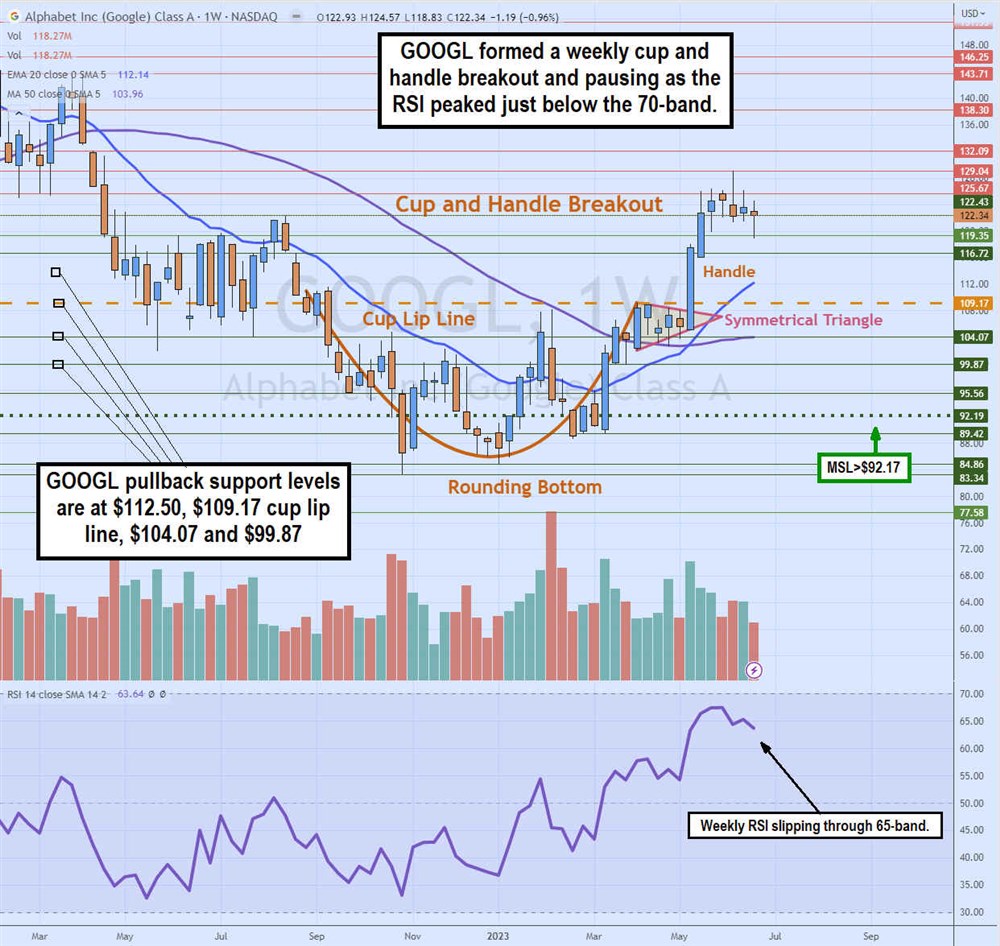The generative artificial intelligence (AI) wars that search engine giant Alphabet Inc. NASDAQ: GOOG owned Google is engaged in with Microsoft Inc. NASDAQ: MSFT has overshadowed a looming threat to its advertising business. This looming threat was self-initiated when Google announced plans to phase out third-party cookies on its Chrome browser in the latter half of 2024. Cookies are tiny files placed in your browser and devices by advertisers that track your browsing history so they can build a profile and send you targeted ads.
These have been privacy concerns for years, and Google is taking steps to accommodate privacy advocates. Online advertisers are upset, but privacy advocates see it as a meaningful first step to ensuring online user privacy. Investors wonder if Google is shooting itself in the foot with the ban.
Third-Party Cookie Bans Are Not New
Apple Inc. NASDAQ: AAPL has already had third-party cookie bans, implementing its Intelligent Tracking Prevention (ITP) feature that prevents tracking users across multiple websites. It's embedded in its Safari browser. This has caused many advertisers and platforms like Snap Inc. NASDAQ: SNAP to suffer losses. Apple is continuously updating the ITP feature to be more effective in protecting user privacy. While third-party cookies are banned, websites can use "fingerprinting," which enables sites to track users by collecting unique identifiers on their devices.
Google’s Ban
As the most powerful advertising platform controlling over 90% of internet searches, Google is perceived to be shooting itself in the foot with the ban. However, that may not be the case. The ban is on third-party cookies, not first-party cookies. This means that websites you use are allowed to track you on their site; they can't track you when surfing other sites. The initial impact will likely hurt Google's ad business, making targeted advertising much harder to perform.
Google’s FLEDGE Solution
Google has been working on ways to protect user privacy yet still enable target advertising. It's First. Locally. Executed. Decision over. Groups. Experiment. (FLEDGE) is a proposal within Google's Privacy Sandbox. The trend toward privacy-preserving advertising is gaining steam. FLEDGE will not collect or store user data on Google servers.
FLEDGE makes third-party tracking difficult using differential privacy, which adds so much noise to data that it makes identifying individual users nearly impossible. FLEDGE will collect minimal data to make targeted advertising possible while protecting user privacy.
FLEDGE is a technology that still needs to be adopted by advertisers who are not entirely convinced of its effectiveness. They will use Fastly Inc. NASDAQ: FSLY oblivious HTTP (OHTTP) to keep user data private, preventing cross-site and cross-app tracking while enabling targeted advertising through various other identification methods.\
Third-Party Cookie Alternatives
There are arguably less effective ways to enable targeted ads. First-party cookies allow websites to track user activity on their domain. Contextual targeting delivers ads based on the contents of the web page that the user is visiting. While less effective, it can be more relevant. Advertisers can target ads directly to interest groups. Federate Learning of Cohorts (FLoC) is another technology that Google is developing that can preserve privacy by replacing third-party cookies utilizing differential privacy.
Alphabet analyst ratings and price targets are at MarketBeat.

The definitive beginner’s guide to reading stock charts can be found free on Marketbeat.
Learn how to use the RSI indicator on MarketBeat.
Weekly Cup and Handle Breakout
The weekly candlestick chart on GOOGL illustrates a cup and handle breakout. The cup lip line commenced after peaking at $110.95 in August 2022 as shares fell to a low of $83.34 in October 2022.
After failed attempts to reach the cup lip line, GOOGL formed a rounding bottom on the breakout through the weekly market structure low (MSL) trigger at $92.19 in January 2023.
Shares eventually tested the lip line at $109.17 in April 2023 and receded into a symmetrical triangle that triggered a sharp breakout handle in May 2023 as shares peaked at $129.04. The weekly RSI peaked under the overbought 70-band as shares took a breather. Pullback supports are at $112.50, $109.17 cup lip line, $104.07 and $99.87.
Before you consider Alphabet, you'll want to hear this.
MarketBeat keeps track of Wall Street's top-rated and best performing research analysts and the stocks they recommend to their clients on a daily basis. MarketBeat has identified the five stocks that top analysts are quietly whispering to their clients to buy now before the broader market catches on... and Alphabet wasn't on the list.
While Alphabet currently has a Moderate Buy rating among analysts, top-rated analysts believe these five stocks are better buys.
View The Five Stocks Here
Learn the basics of options trading and how to use them to boost returns and manage risk with this free report from MarketBeat. Click the link below to get your free copy.
Get This Free Report
Like this article? Share it with a colleague.
Link copied to clipboard.